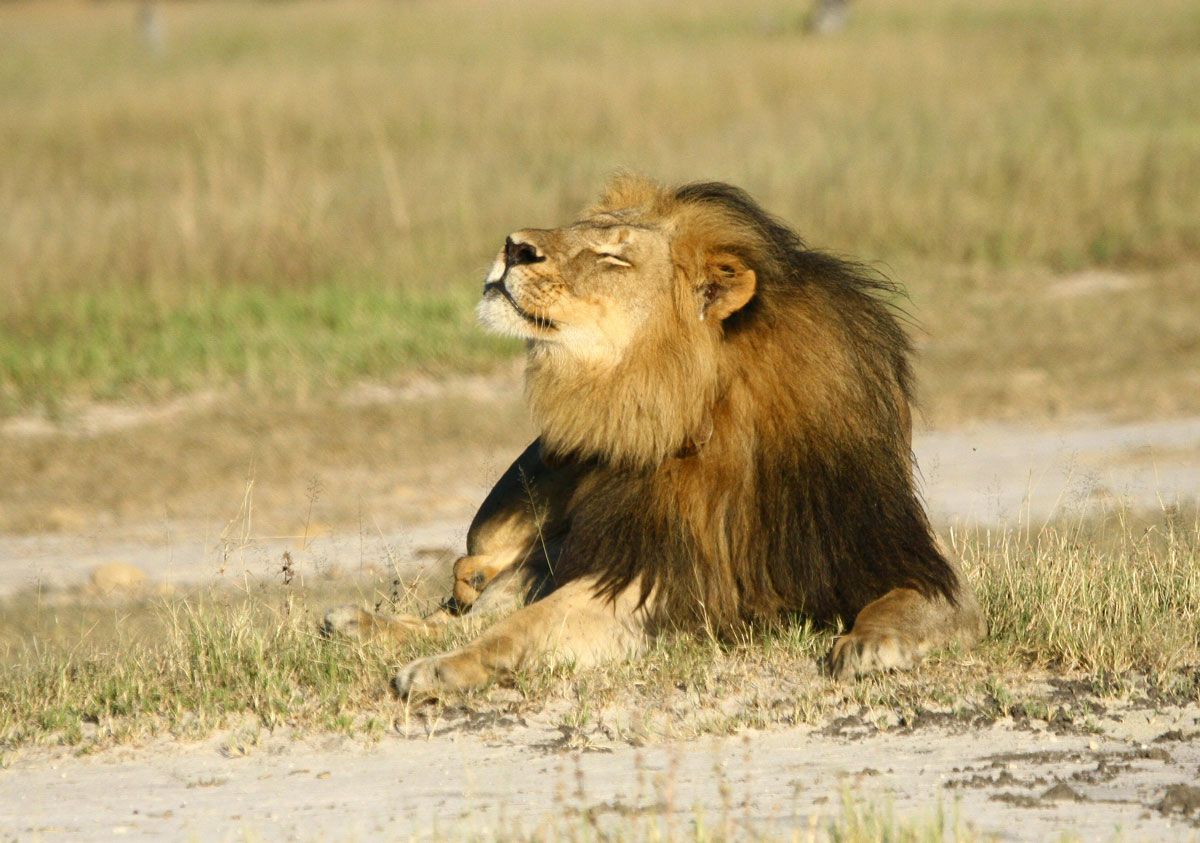
At the beginning of the 20th century, there were perhaps a million lions throughout Africa, and by the 1940s there were 450,000. Today there are about 20,000, and that number is continuing to drop.
One of the more in-depth studies of its kind, published Monday in the journal Proceedings of the National Academy of Sciences, shows that lions are continuing to decline in western and central Africa, where there is a 50 percent chance these populations will be halved in the next two decades.
But even in East African countries like Kenya, a historical stronghold for lions where more than a million tourists visit annually, the animal isn't in good shape. The paper, which analyzed the results of 47 individual studies of distinct populations, estimates there's a 36 percent chance lion numbers in eastern Africa will decline by 50 percent by 2035.
In the vast majority of their former range, which encompassed most of Africa, lions are already gone. The decline of lions in so many places now suggests that they, as a whole, no longer play the same ecological role—apex predator—that they once did, says study co-author Hans Bauer, a scientist with the Wildlife Conservation Research Unit at the University of Oxford.
"We have known for a long time that lions are declining, but this is not just about less lions; it is about lions no longer playing a keystone role in functioning ecosystems," Bauer says. "Lion trends are indicative of a deeper crisis" that will eventually affect other, less sensitive species, he adds.
In many areas, though, populations won't just decrease but disappear. "These declines are precipitous and will likely lead to functional extinction of many lion populations outside southern Africa," says Matt Hayward, a researcher at England's Bangor University.
Lions are primarily threatened by human population growth, and the expansion of farming and ranching, says scientist and conservationist Laurence Frank, who wasn't involved in the paper. Lions love to eat cattle. But as ranching expands and lions start eating herds, poisoning and reprisal killings of lions become more common. More humans also mean fewer large herbivores like water buffalo, and thus less food for lions. The decline of lions is mirrored by a decline in these large vegetarians, the study found: Lions are worse off in west and central Africa, where herbivore numbers have declined by 85 percent between 1970 and 2005. That decline is 28 percent in southern Africa, where lions are doing better.
In fact, lion populations are actually increasing in four southern African countries: Botswana, Namibia, South Africa and Zimbabwe. That's because the governments of these countries are spending money to thwart poaching, and/or the animals are protected in large fenced reserves, Frank says. If the decline of lions is to be thwarted elsewhere, it will take this kind of (expensive) approach, he adds.
"African wildlife is going down the toilet very rapidly, and only spending a great deal of money and effort is going to turn that around," Frank says.
Uncommon Knowledge
Newsweek is committed to challenging conventional wisdom and finding connections in the search for common ground.
Newsweek is committed to challenging conventional wisdom and finding connections in the search for common ground.
About the writer
Douglas Main is a journalist who lives in New York City and whose writing has appeared in the New York ... Read more
To read how Newsweek uses AI as a newsroom tool, Click here.








